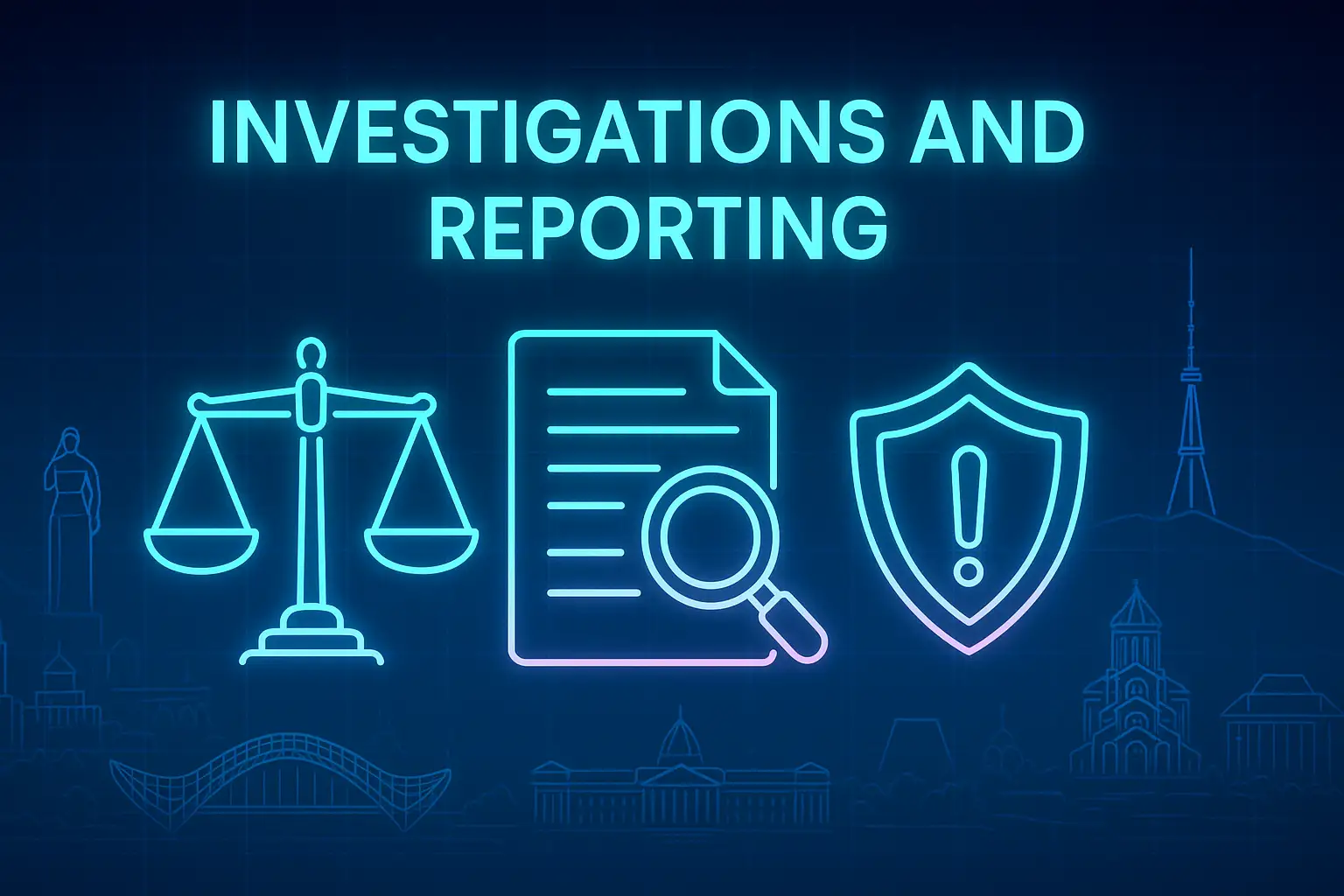Discovering a potential sanctions breach is one of the most critical legal emergencies a company can face. The response in the first 48 hours is decisive and can dictate the severity of regulatory penalties, financial fines, and reputational damage. When a potential violation is flagged—whether through an internal alert, a correspondent bank inquiry, or an employee report—a rapid, privileged, and forensically sound investigation is not optional; it is a legal necessity. Legal Sandbox Georgia provides an immediate, crisis-response legal service, acting as external counsel to investigate potential breaches, manage regulatory reporting, and navigate the complex process of self-disclosure to mitigate liability.
Internal Investigations into Potential Sanctions Breaches
When a potential breach is identified, we act as independent external counsel to conduct a formal internal investigation under legal privilege. This privilege is essential to protect the investigation's findings from discovery in potential future litigation. Our process involves a forensic review of transaction data, communications (e.g., emails, payment messages), and internal documentation. We conduct structured interviews with relevant staff to establish the factual timeline, determine the root cause of the compliance failure, and definitively quantify the scope, nature, and value of the potential breach. The outcome is a formal, privileged report for senior management and the board, detailing the facts and assessing the company's precise legal exposure.
Reporting Obligations to Regulators and Financial Institutions
Upon confirming a breach, a company is often under a strict legal obligation to report the incident to competent authorities, such as the National Bank of Georgia or the Revenue Service, as well as to its upstream financial partners (correspondent banks). Failure to report in a timely and transparent manner is a separate and severe violation. We manage this entire communication process. We prepare the formal, legally precise notifications required by regulators, ensuring the report contains all necessary facts without making unnecessary or damaging admissions of fault. We also draft the communications to your banking partners, which is critical for preserving these essential relationships and preventing immediate de-risking (account closure).
Remediation Planning and Corrective Actions
A key component of any regulatory response is demonstrating that you have taken immediate and decisive steps to fix the problem and prevent its recurrence. Based on our investigation's root-cause analysis, we design and oversee the implementation of a formal Remediation Plan. This is a documented set of corrective actions, which may include enhancing technology (e.g., tuning screening filters), updating deficient policies, and conducting mandatory, targeted retraining for all staff involved in the failure. This plan serves as crucial evidence to regulators that the breach was an isolated incident, not a systemic failure, and that the company is a responsible actor.
Voluntary Self-Disclosures and Engagement with Authorities
In many jurisdictions, including the US (OFAC) and UK (OFSI), voluntarily disclosing a breach before the government discovers it can be a significant mitigating factor, potentially leading to a substantial reduction in penalties. This is a high-stakes, strategic legal decision. We advise management on the costs, benefits, and risks of making a Voluntary Self-Disclosure (VSD). If the decision is made to proceed, we manage the entire process, from drafting the initial VSD letter and gathering the extensive required documentation to acting as your legal representative in all subsequent meetings, negotiations, and communications with the regulatory authority, advocating for the most lenient possible outcome.
Crisis Management in Sanctions Violations
A sanctions violation is not just a legal problem; it is a business crisis. It can trigger the freezing of accounts by correspondent banks, the termination of key supplier contracts, and severe public reputational damage. Our role extends to managing the wider crisis. We work alongside your leadership and communications teams to ensure all external statements are legally accurate and strategically sound. We engage directly with financial partners to provide them with the necessary assurances and details of your remediation plan, with the primary goal of maintaining business continuity and preserving the critical banking and commercial relationships that your company needs to survive the event.
Updated: ...
